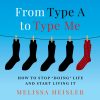Intuition
“Form the intention to work on the problem, and then trust the part of you to work on it.” You may be thinking that this came from the sequel to The Secret which describes how to use the Law of Attraction – set your intention then trust it will occur. But no, this was the research conducted by the Kellogg School of Management.
The management article outlines research conducted on choosing. What I learned from the research was: 1) simple decisions were better made cognitively, more complex decisions were better made going with one’s gut, 2) decisions were better made not when one concentrated on what to do, but by setting the intention to solve the problem then distracting the conscious mind. What I heard in this research was proof that our essential selves, our body compasses, our internal source, and/or the god within is a better judge of what is right for us than our conscious mind.
How often do we think and think and think through a problem only to feel that the logical answer is not correct? How often do we become sad and depressed when the logical, cognitive answer is not the one that makes our heart sing? How often do we receive flashes of insight on what to do or say? How often do we just “feel in our gut” what to do?
Back in the day, I pursued a career in theatre. I enjoyed directing but I ran into trouble in graduate school. The teachers wanted me to explain every choice I made. Why did I have the actor move stage right? Why is the actor using an Irish brogue? Why did I choose a pink dress for the leading lady? Why did I include an owl hooting in the last scene? They wanted me to detail the reasoning for every nuance of the play. I couldn’t. I never made a conscious decision as to any element of the play. In fact, any time I tried to be cleaver it did not turn out quite right. Most of the time, I would just sit and read the script and as I read the words the play came alive to me. I would just see the play – the actions, sound, lights, and sets – playing out in my mind’s eye. All I did was write down what I saw.
The Kellogg article states, “For unconscious thought to work, it needs to be goal directed. You need to form an intention to work on a problem, and then divert attentions elsewhere. It’s all about intention and trust.” Intention and trust are two powerful words. Intention is very important. All too often we go throughout life without direction, without goals, without a destination and then we are also disappointed that we do not have the life we desire. To gain what we desire, we need to put out to the universe what it is that we want. What is our intention? What do we want to solve, gain, or lose? By setting an intention, we are placing our order with the universe.
Intention is easy – we just need to remember to do it. Trust is hard. Trust means letting go of control and getting out of the driver’s seat. Trust means accepting when things come to us and how they come. Trust means more than believing but knowing that what we asked for we will receive. Trust means distracting the mind and then sitting silently with one’s self and allowing the answer to come. And trust means accepting the answer that comes to us through means other than through logic.
Has there been a time that you set an intention and trusted that it would come true? Was there a time when you went with your gut and things turned out better than you could have imagined had you followed the logical course? Share with us your experiences with intuition, intention, and trust.





